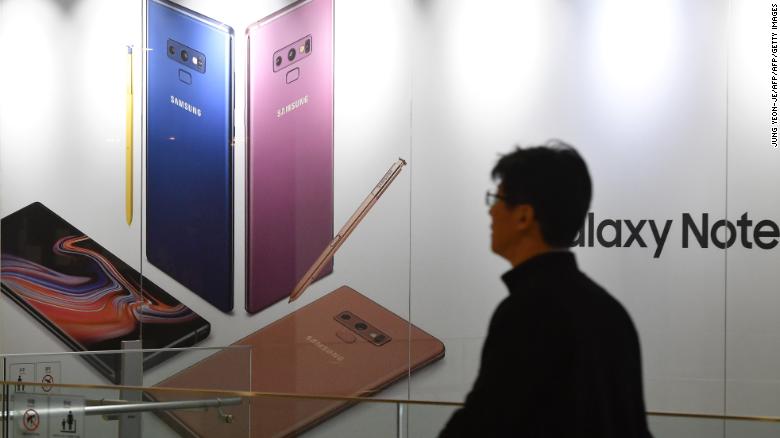The Japan-South Korea trade spat is getting worse. That’s bad news for the tech industry

During a telephone call on Friday, Foreign Minister Kang Kyung-wha pressed her Japanese counterpart to lift trade restrictions on materials South Korean companies need to produce computer chips. She also urged Tokyo not to further aggravate the situation by removing South Korea from a list of countries that can trade with Japan with minimum restrictions. Japan is “on course” to drop South Korea from its so-called white list of countries and a decision could come as early as August 2, sources familiar with the matter told CNN. If that happens, companies would need a government license to sell any products that could potentially be used for weapons and military applications to South Korean firms. South Korea is Japan’s third largest trading partner, buying about $54 billion worth of Japanese goods, including industrial machines, chemicals and cars, according to a trade data tracking tool affiliated with the Massachusetts Institute of Technology. The standoff between the two countries started earlier this month when Tokyo placed controls on exports of three chemical materials to South Korea. The materials — fluorinated polyamides, photoresists and hydrogen fluoride — are used to make computer chips, among other things.The restrictions are having an impact on the global semiconductor industry, which was already under pressure from sluggish demand. South Korea’s Samsung (SSNLF) and SK Hynix make nearly two thirds of the world’s memory chips, which are used in everything from smartphones to connected cars. Smartphone makers including Apple (AAPL) and Huawei rely on memory chips from the South Korean companies. SK Hynix warned on Thursday of weaker sales for the second half of the year, saying it can’t rule out production disruption if Japanese export curbs drag on. The company said it’s trying to stockpile the materials as much as possible in response to Japan’s export controls. They require companies to apply for licenses for each of the three chemical materials they sell to South Korea. The process can take up to 90 days.Samsung referred CNN Business to an earlier statement, saying it is assessing the situation and “reviewing a number of measures to minimize impact on our production.” If the restrictions continue and Samsung and SK Hynix fall short of supplies, the companies will face “disruption in semiconductor production, which will have negative impact on global IT demand,” said SK Kim, an analyst with brokerage firm Daiwa. “If Japan removes South Korea from the white list, the impact will be widened to other industry areas, which will be negative for both (countries),” Kim added. Tension between the two countries has been rising for months, stemming in part from Japan’s colonial rule over the Korean peninsula in the early 20th century. South Korea’s top court recently ruled that its citizens can sue Japanese companies for using forced Korean labor during World War II. Japan has denied that the two issues are linked. Yoonjung Seo and Yoko Wakatsuki contributed to this report.




